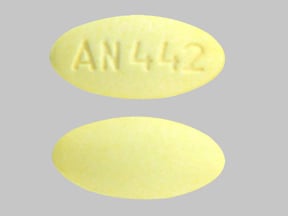
Meclizine Coupons & Savings Card – Discount Prices from $8.19
Generic for: Antivert, Bonine, Dramamine less drowsy
My prescription
Edit
25MG, Meclizine (30 Tablets)
Select pharmacy

CVS
$19.17
COUPON PRICE
Albertsons
$8.19
COUPON PRICE
Walgreens
$9.88
COUPON PRICE
Walmart
$14.34
COUPON PRICEMeclizine savings card
Show this card to your pharmacist
Albertsons
$8.19
BIN
ID
PCN
GRP
011867
LH3BD58209
HT
LABH001
Powered by
More prescriptions for vertigo
More prescriptions for vertigo
Price history for Motion Sickness Relief (brand) & Meclizine (generic)
30 Tablets, 25MG
Average retail price for Motion Sickness Relief
Average retail price for Meclizine
Average SaveHealth price for Meclizine
Our price history data is based on aggregated prescription data collected from participating pharmacies in America. Our prescription data updates daily to reflect the latest price changes. If you notice a missing data point, it means there wasn't sufficient data available to generate a monetary value for that date.
We analyzed Meclizine prices for (25MG, 30 Tablets) over the last 12 months. The average retail price was $43.04, while the average price using the SaveHealth discount card was $13.89. That's a savings of approximately 67.73% when using our Meclizine coupon.
Compared to the generic version, Motion Sickness Relief had an average price of $8.61 over the same time period. With the SaveHealth savings card, Meclizine is -61.32% cheaper on average than Motion Sickness Relief.
*Retail prices are based on pharmacy claims data, and may not be accurate when we don't have enough claims.
Meclizine dosage forms
Dosage Quantity Price from Per unit 12.5MG 1 Tablet $9.04 $9.04 12.5MG 4 Tablets $9.18 $2.29 12.5MG 6 Tablets $9.26 $1.54 12.5MG 7 Tablets $9.31 $1.33 12.5MG 10 Tablets $9.44 $0.94 12.5MG 12 Tablets $9.53 $0.79 12.5MG 15 Tablets $9.66 $0.64 12.5MG 20 Tablets $9.88 $0.49 12.5MG 21 Tablets $9.92 $0.47 12.5MG 30 Tablets $10.31 $0.34
| Dosage | Quantity | Price from | Per unit |
|---|---|---|---|
| 12.5MG | 1 Tablet | $9.04 | $9.04 |
| 12.5MG | 4 Tablets | $9.18 | $2.29 |
| 12.5MG | 6 Tablets | $9.26 | $1.54 |
| 12.5MG | 7 Tablets | $9.31 | $1.33 |
| 12.5MG | 10 Tablets | $9.44 | $0.94 |
| 12.5MG | 12 Tablets | $9.53 | $0.79 |
| 12.5MG | 15 Tablets | $9.66 | $0.64 |
| 12.5MG | 20 Tablets | $9.88 | $0.49 |
| 12.5MG | 21 Tablets | $9.92 | $0.47 |
| 12.5MG | 30 Tablets | $10.31 | $0.34 |
| 12.5MG | 40 Tablets | $10.75 | $0.27 |
| 12.5MG | 50 Tablets | $11.19 | $0.22 |
| 12.5MG | 60 Tablets | $11.63 | $0.19 |
| 12.5MG | 90 Tablets | $19.33 | $0.21 |
| 12.5MG | 100 Tablets | $19.81 | $0.20 |
| 12.5MG | 500 Tablets | $39.06 | $0.08 |
| 12.5MG | 1000 Tablets | $55.30 | $0.06 |
| 25MG | 30 Tablets | $11.52 | $0.38 |
| 25MG | 1 Tablet | $9.08 | $9.08 |
| 25MG | 4 Tablets | $9.34 | $2.33 |
| 25MG | 6 Tablets | $9.50 | $1.58 |
| 25MG | 8 Tablets | $9.67 | $1.21 |
| 25MG | 10 Tablets | $9.84 | $0.98 |
| 25MG | 12 Tablets | $10.01 | $0.83 |
| 25MG | 15 Tablets | $10.26 | $0.68 |
| 25MG | 20 Tablets | $10.68 | $0.53 |
| 25MG | 21 Tablets | $10.76 | $0.51 |
| 25MG | 25 Tablets | $11.10 | $0.44 |
| 25MG | 50 Tablets | $13.20 | $0.26 |
| 25MG | 60 Tablets | $14.03 | $0.23 |
| 25MG | 90 Tablets | $22.50 | $0.25 |
| 25MG | 100 Tablets | $23.34 | $0.23 |
| 25MG | 120 Tablets | $25.00 | $0.21 |
| 25MG | 1000 Tablets | $55.30 | $0.06 |
| 50MG | 30 Tablets | $50.93 | $1.70 |
| 50MG | 60 Tablets | $83.57 | $1.39 |
| 50MG | 100 Tablets | $135.08 | $1.35 |
